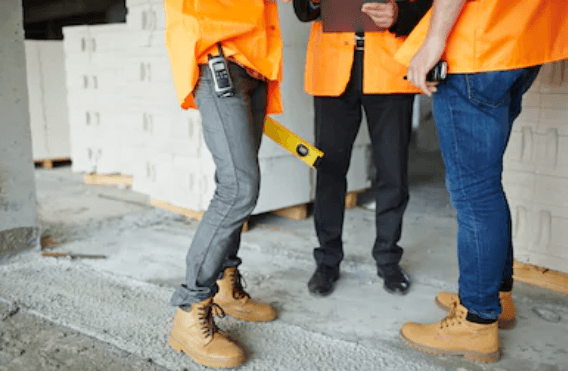Although wearing shoes inside home sounds like a strange idea, there are many professions that need workers to wear work boots at their worksites including residential contractors, plumbers, electricians, gardeners, etc. Also, OH&S requires that employers must ensure that their workers are wearing proper protective equipment including shoes if their work poses danger to their feet. Yes, you might need to convince your clients that it’s for your safety and also because you’re bound by the authorities to wear protective shoes at your workplace.
In this post, we’ll have a look at some of the reasons why workers should wear boots inside their client’s homes.
Prevents Slips, Trips and Falls
Slips, trips, and falls can occur at any place. Obviously, you don’t have to work as a construction contractor only to get affected by it. Even if you’re working as a residential contractor, you may still get injured due to slippery floors or ladders. This is where safety work boots come to your salvage. Due to their incomparable traction features and anti-slip capacity, you can easily protect yourself against slips, trips, and falls.
Protects from Electricity Hazards
While working as a home contractor, you’re always at risk of unexpected electricity hazards. Since work boots act as specialized protective equipment that saves you from possible electrical hazards, you can easily keep yourself secured by including work boots into your workplace attire.
Prevents Contamination
It may sound strange but your boots can actually prevent contamination and spread of germs especially if you work as a residential contractor or your nature of the job requires you to visit the customer’s house. For instance, if you’re, say, working in a home cleaning or carpet cleaning space in which you have to deal with various chemical-based solutions or toxic detergents, your workboats not only protects your own feet but it will also keep your client’s home free from germs provided you wear safety shoe covers on them. It’s one of the safest ways you can protect yourself from hazardous chemicals at the same time preventing the spread of germs and toxins in your client’s home.
Curtails Fatigue
Fatigue can be a real issue if your work nature requires you to stand all day. Muscles in the feet and leg grow tired and the condition can be worsened if you don’t wear suitable work boots. Footwear that provides proper support and cushioning can make you feel more comfortable and also alleviates muscle strain. This apparently means workers will be fresh and active throughout the day and will likely do their work more safely and productively.
Noticeably, preventing muscle strain will also reduce the risk of musculoskeletal disorders.
Protects from Harsh Weather Conditions
Protective work boots are generally waterproof, meaning you can wear them in any weather to protect your feet against extreme weather conditions. If your job nature requires you to come in contact with water often or if you provide services that require you to stand long hours in the garden then you should wear work boots to protect your feet from rain, snow or water.
OH&S Requires Workers to Wear Protective Boots at Workplace
As it is clearly mentioned, work boots for the workplace offer a plethora of benefits to the workers. These reasons alone are sufficient enough to start using boots inside home right away. But did you know there is another reason you should always wear work boots at your workplace? Yes, you got it right. OH&S also requires employers to make sure their workers use work boots in areas where there is a risk of foot injuries due to falling objects or slips, trips, and falls.
Work Health and Safety Regulation 2017
“The employer shall ensure that each affected employee uses protective footwear when working in areas where there is a danger of foot injuries due to falling or rolling objects, or objects piercing the sole, or when the use of protective footwear will protect the affected employee from an electrical hazard, such as a static-discharge or electric-shock hazard, that remains after the employer takes other necessary protective measures.”
Thus, to excel in the present-day competitive business environment, it’s crucial that your business complies with recent regulations. Make sure you follow the requirements and choose the right type of protective shoes for yourself.




